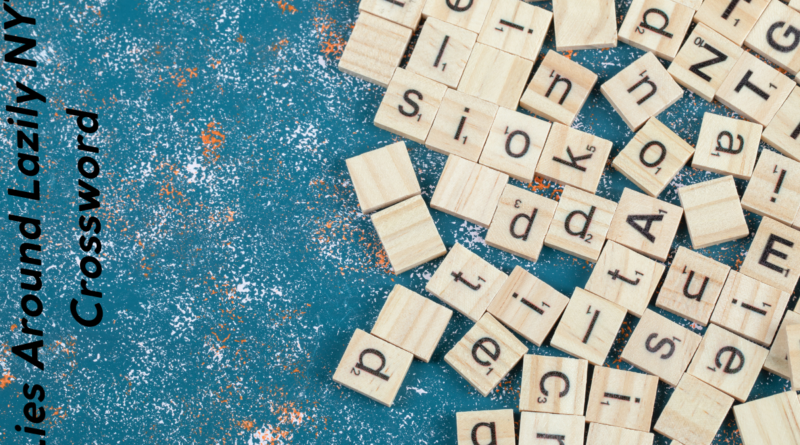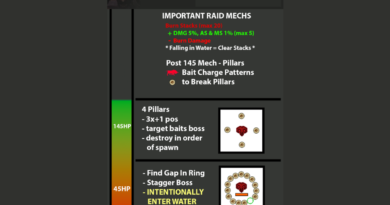Lies Around Lazily NYT Crossword Clue
Introduction
In the realm of crossword puzzles, solving clues combines aspects of science and art. Usually accomplished via wordplay, synonyms, or clever associations, each cryptic clue serves to steer the person solving the problem to the proper response. One of these fascinating hints that has lately surfaced in puzzles like the New York Times Mini is “Lies around lazily,” with a “LOLLS” (five letter) answer. Let us now explore the meaning of this clue and its positioning inside the crossword puzzle terrain.
The key to understanding is Lies Around Lazily NYT Crossword
Designed to be misleading and seductive, the clue “Lies around lazily” has been ready. First glance would suggest that it is simple, suggesting that someone is lying down in a bored state. Conversely, crossword puzzles usually call for a more advanced interpretation of the hints themselves. Apart from the act of lying, the word “lies” can also refer to falsehoods or assertions devoid of truth. Contextually, “around” could refer to encircling or surrounding. This is why the phrase “Lies around lazily” is a great mix of these elements, which finally results in the answer “LOLLS,” which can suggest either to lounge in a peaceful state or to lie around lazy.
Also Read:“Spot of tea?” clue from NYT Mini
Contextual Use Examples: The Dynamics of Crossword Puzzles
Newspapers including the New York Times and other outlets carry a reputation for the accuracy and wit of crossword puzzles. Every clue has been deliberately developed to challenge the solvers and keep them interested using a mix of vocabulary, jokes, and cultural references. This art is demonstrated by the phrase “Lies around lazily,” which shows how a phrase that seems simple could evolve into a wordplay solution with great satisfaction.
Building and interpreting crossword puzzles is a sort of artistic expression unto itself.
Crossword puzzle constructors meticulously weave together clues that combine definitions, wordplay, and cultural references, much as professional artisans might. To solve every clue—including “Lies Around Lazily NYT Crossword—you must find the exact mix of simplicity and detail. Constructors often rely on their great awareness of linguistic subtleties and the psychology of puzzle-solving to offer hints that both challenge and excite those who can solve them. Deciphering such hints calls for not only synonym or literal interpretation but also the decoding of the intended wordplay of the constructor, which can range from homophones and anagrams to cryptic definitions and puns.
Examining the Wordplay: From Literal to Figurative Interpretations
In the realm of Lies Around Lazily NYT Crossword puzzles, hints like “Lies Around Lazily NYT Crossword” are outstanding illustrations of the ability to mix literal and metaphorical interpretations. To grasp how those terms should be employed inside the framework of the puzzle, solvers must go beyond their obvious connotations. Regarding crossword puzzles, for instance, the word “lies” might be used creatively to suggest falsehoods or untruths, even though it usually denotes lying down. Including the term “around” makes the clue even more challenging to grasp and forces people trying to solve it to consider geographical relationships or other explanations.
From the age of conventional print to the era of digital platforms: crossword culture
From their origins in print media, Lies Around Lazily NYT Crossword puzzles have developed into a necessary element of the entertainment sector on the digital sphere. Puzzle solvers have access to a dynamic arena in which they may interact with puzzles including “Lies Around Lazily NYT Crossword” and communicate approaches and answers in real time by means of platforms including interactive apps and online forums. This breakthrough has made access to crossword puzzles more possible, which has led to the growth of an international community of fans who like the difficulty and gratification of completing each clue.
Advice and Techniques for Interpreting the Clues to the Cryptic Crossword
Solving cryptic Lies Around Lazily NYT Crossword clues calls for a blend of analytical thinking and creative interpretation. When given a clue like “Lies Around Lazily NYT Crossword” people who are trying to solve the challenge could start by breaking the suggestion apart into its component bits. This covers figuring alternative synonyms for the word “lies,” considering other definitions of the word “around,” and looking at several situations in which the word “lazily” might be employed. Often the gain of important insights results from the employment of techniques include searching for hidden words (for example, “lies” within “lazily”), considering word reversals, or seeing repeating crossword patterns.
Conclusion
In the realm of crossword puzzles, hints like Lies Around Lazily NYT Crossword Clue offer more than just a challenge; they also offer a peek into the creative brains of people who construct puzzles. To decode such hints, one needs combine vocabulary knowledge, the ability to think in a lateral fashion, and an awareness of language’s nuances. As they work through each tip, people who finish the puzzle not only enhance their capacity to solve difficulties but also gain a better awareness of the complexity of language.
FAQs
How do people who design Lies Around Lazily NYT Crossword puzzles get to hints like ?
Crossword puzzle constructors use puns, homophones, anagrams, and cryptic meanings among other wordplay techniques to deliver pleasant clues that are also challenging.
Why is the appropriate answer to “Lies Around Lazily NYT Crossword” “LOLLS”?
The word “LOLLS” captures the idea of lounging around doing nothing, which is much in line with the clue’s rather straightforward deceptively simple character.
Where can I find more crossword puzzle solutions and explanations?
Along with websites like the Los Angeles Times and the New York Times that provide daily puzzles along with in-depth explanations and answers to help individuals looking to hone their skills, there are a range of crossword blogs.
How may I boost my crossword problem solving capacity?
You should practice, increase your vocabulary, learn the rules of crossword puzzles and wordplay strategies, and enjoy the process of overcoming every difficulty.




